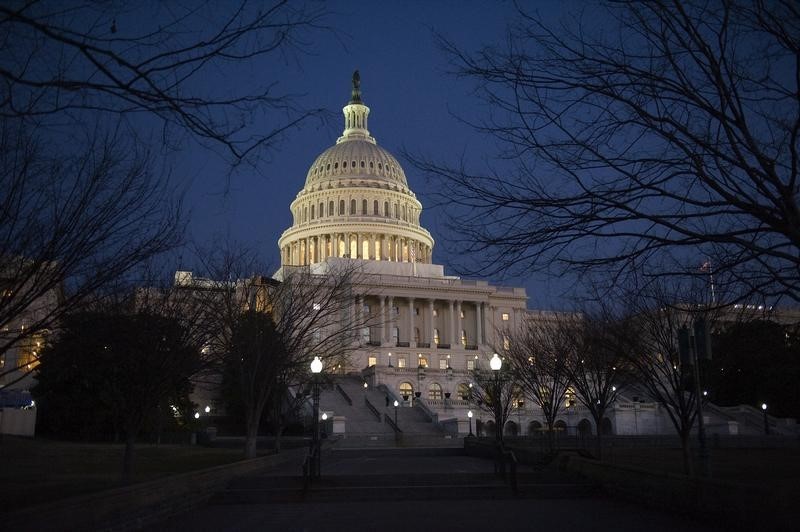By Amanda Becker
WASHINGTON (Reuters) - Conservative presidential candidates hitting the 2016 campaign trail are firing up crowds with calls to shrink the U.S. government, but a new poll shows that Republican voters who rally to that cry still want to maintain many federal programs.
Ideas such as abolishing the U.S. income tax and shifting many of the federal government's responsibilities to the states draw robust support from Republican voters, according to a Reuters/Ipsos poll. But there is much weaker support for curbing government's role in providing a social safety net and for curbing some of its regulatory functions.
The results, from an online poll of 4,770 adults from April 10 to 24, highlight a dilemma for Republican candidates such as Senator Rand Paul of Kentucky and Senator Ted Cruz of Texas who have made reducing the size of government a top campaign theme. While many Americans, particularly Republicans and independents, favor decreasing government's size and reach, specific policies for doing so are far less popular.
Among Republicans, 51 percent support abolishing the U.S. federal income tax versus 39 percent who disagree. By 60 percent to 28 percent, Republicans said they believe state governments should have more authority than the federal government. Fifty-six percent of Republicans said the federal government should have very little authority over domestic affairs.
Forty-seven percent of independents favored abolishing the income tax compared with 38 percent who are opposed. On whether the federal government should have less authority over domestic affairs, independents were evenly divided.
But when asked about ending specific functions of the federal government, voters of all political stripes, including many Republicans, were less receptive. Nearly 80 percent of Republicans oppose eliminating middle-class entitlement programs such as Social Security and Medicare
Sixty-four percent of Republicans oppose getting rid of aid programs for the poor, such as food stamps and Medicaid. Forty-seven percent of Republicans disagree with abolishing or significantly reducing the authority of regulators such as the Food and Drug Administration. That compared with only 42 percent who agree.
Among independents, 77 percent oppose abolishing programs such as Social Security and Medicare, and 70 percent were against eliminating Medicaid and food stamps. Fifty-six percent rejected the idea of eliminating or reducing agencies such as the FDA.
Adults 60 and older were the largest age group among respondents to the poll, comprising 28 percent. Those 18-29 made up 17 percent; those 30-39 and 40-49 each accounted for 16 percent. Respondents age 50-59 made up 23 percent.
Older voters tend to vote in higher numbers.
Paul hopes to build momentum for his presidential campaign by rallying the support of libertarians who supported the three White House bids of his father, Ron Paul. Playing to the base of support among libertarians, who favor a limited role for government, Paul has made curbing domestic spying one of his signature issues.
When he launched his 2016 presidential campaign on April 7, Paul railed against big government and federal deficits.
Cruz, a favorite of Tea Party voters, some of whom lean libertarian, says he wants to kill off the Internal Revenue Service tax-collection agency and would replace the current complicated tax code with a flat tax.
One in five Americans consider themselves libertarian, with younger adults being the most likely to adopt the label. Among adults aged 18 to 29, 32 percent consider themselves libertarian. Just 12 percent of Americans age 60 or older consider themselves libertarian.
Matt Welch, editor of the libertarian magazine Reason, said young people are more likely to consider themselves "free agents," and because of that are more likely to gravitate toward libertarianism. "They don't belong to churches, they don't belong to things," he said.
The Reuters/Ipsos poll had a credibility interval, a measure of accuracy, of 1.6 percentage points for all adults.

(Full poll: http://polling.reuters.com/#!response/TM547Y15/type/smallest/dates/20150410-20150424)